Flowers to Plant in a Vegetable Garden: A Handy Guide
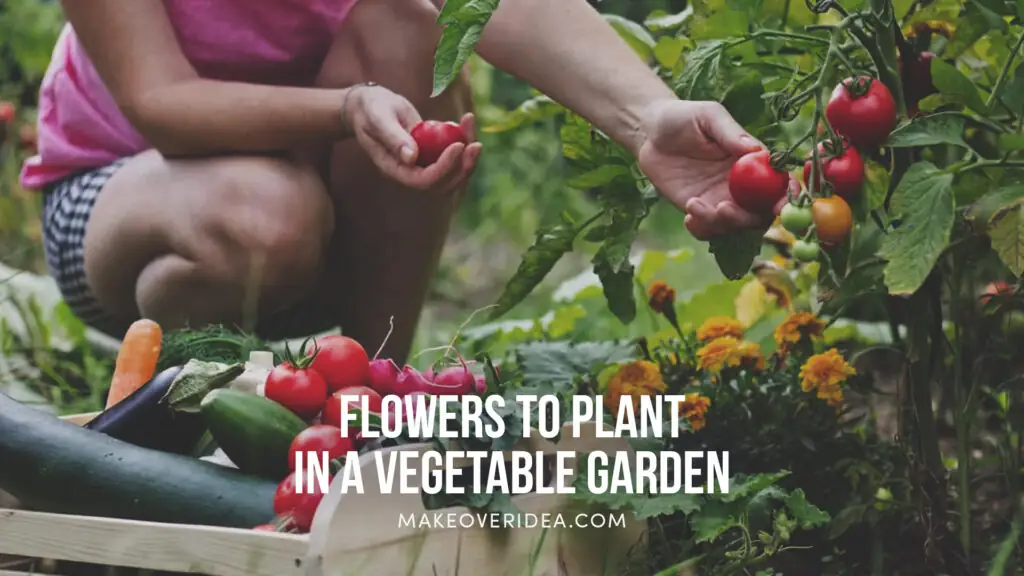
Not only do they look beautiful, but also they help you with pest management and plant pollination. Which flowers to plant in a vegetable garden? What should you know about companion planting? Read on, and you will learn how to both turn your garden into an aesthetically beautiful place and gather in a bumper harvest.
The Advantages of Companion Planting
Companion planting is the technique of cultivating various plants together to increase the health, growth, and yield of one or both plants. There are numerous advantages to putting flowers into your vegetable garden, making it a worthwhile investment.
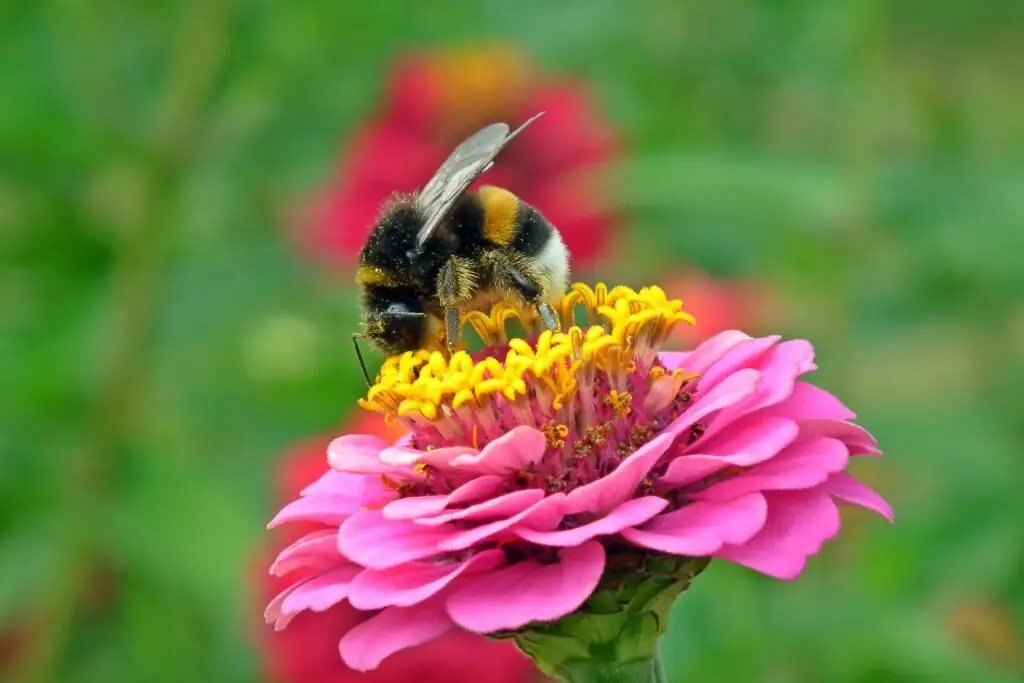
Natural Pest Control
One of the critical benefits of companion planting is its potential to aid in pest control without the use of chemicals. Flowers can function as a natural pesticide in two primary ways, by repelling insects and other pests and by attracting helpful insects.
Repellent Against Insects and Other Vermin
Some flowers, including marigolds and lavender, exude odors or contain substances that repel several pests. Plant these flowers among your crops, and you will prevent animals such as deer, rabbits, and even squirrels from eating your valuable vegetables. In addition, these blooms have the ability to repel insects like aphids, whiteflies, and flea beetles, eliminating the need for dangerous chemical pesticides.
Attracting Advantageous Insects
Flowers can also attract beneficial insects, such as ladybugs, lacewings, and parasitic wasps, to your garden. All of them help decrease pest populations by preying on or depositing eggs within dangerous insects. Use insects to get rid of insects: isn’t that a clever idea?
Increased Crop Yield and Pollination
If you plant sunflowers, bee balm, and catnip, they will attract such pollinators as bees, butterflies, and even hummingbirds which, in turn, will significantly boost pollination rates. These pollinators carry pollen from one bloom to another, improving fertilization and increasing the productivity of your vegetable crops. A garden filled with pollinators produces a lively and colorful atmosphere as a bonus.
Increasing Flavor and Expansion
Some floral plants can boost the flavor and growth of surrounding veggies. For instance, it is known that nasturtiums increase the flavor of cucumbers and tomatoes. Companion planting can also result in healthier plant growth, as certain flowers can deter soil-borne diseases and pests that might otherwise impact your veggies. In addition to adding a splash of color to your garden, these flowers contribute to the overall health and flavor of your produce.
Leading Flowers for a Vegetable Garden
It always feels great to have a wide choice. Here are the flowers that are good for a vegetable garden.
Nasturtiums
Not only are nasturtiums simple to cultivate, but they also make excellent companion plants for vegetables such as cucumbers, tomatoes, and brassicas.
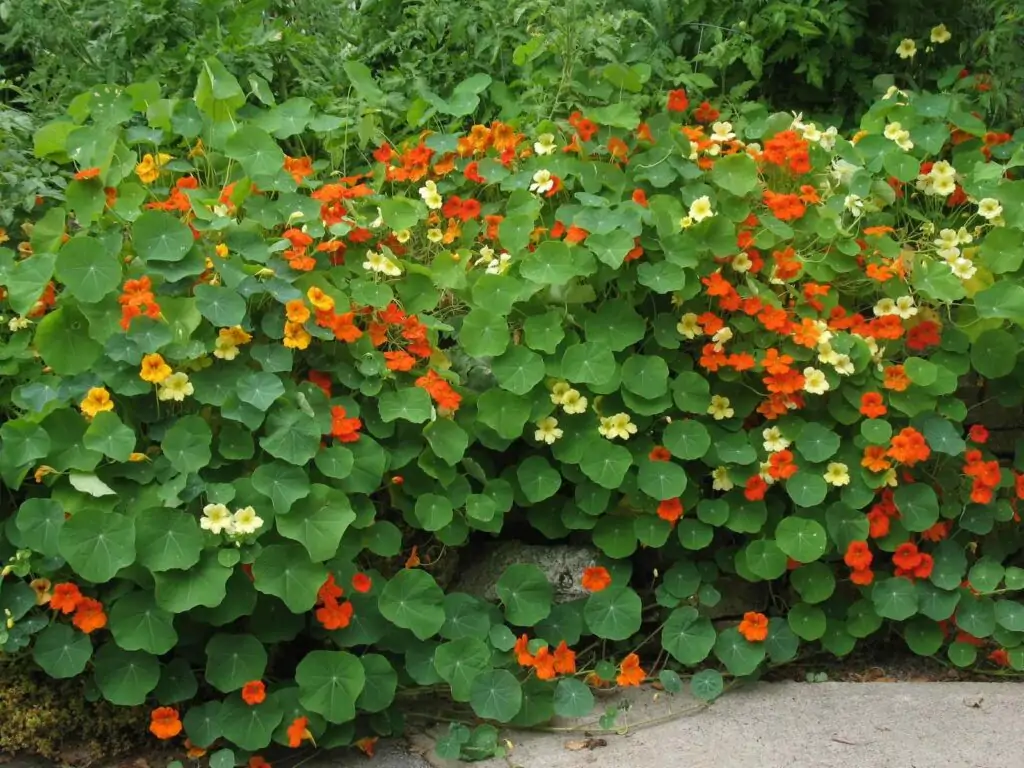
If you plant nasturtiums in your vegetable garden, pests such as aphids and caterpillars will prefer to feed on these flowers and not on your vegetables. Nasturtiums, therefore, help you naturally manage pests and prevent these insects from infesting your more essential plants.
Marigolds in a vegetable garden
Due to their brilliant hues and insect-repelling capabilities, marigolds are a popular companion plant for various vegetables.
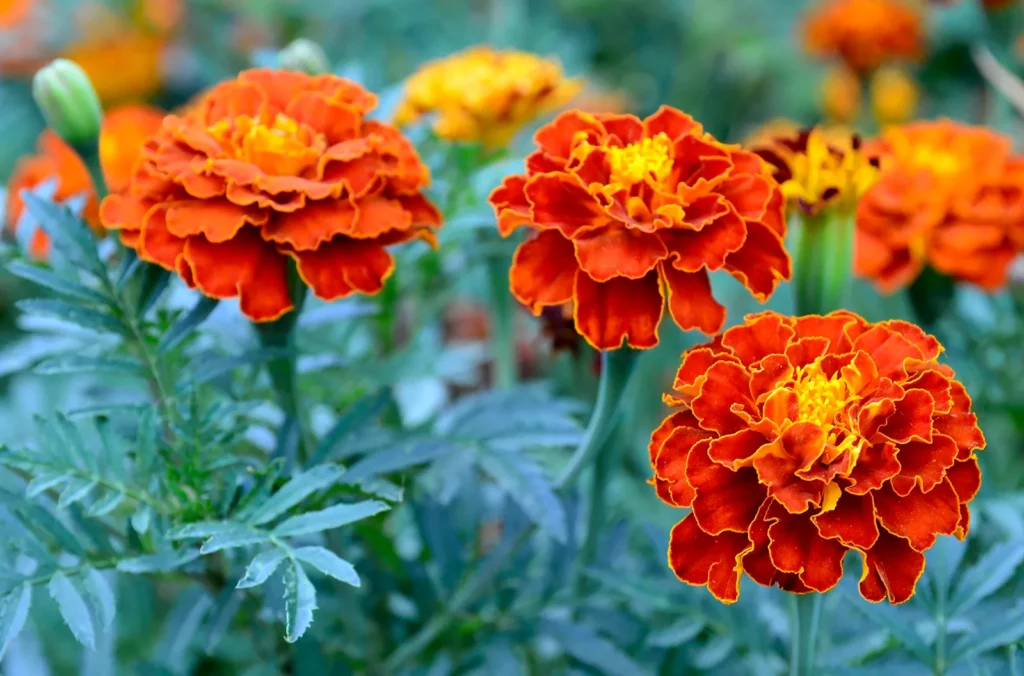
Pyrethrins Found in Nature That Repel Insects
Marigolds contain bioactive compounds called pyrethrins that prevent aphids, whiteflies, and worms. Plant marigolds alongside your vegetable crops, and you will decrease your reliance on chemical pesticides.
Slug Control Using Marigolds
What makes marigolds a good choice of flowers for a vegetable garden is their ability to reduce populations of slugs. The pungent odor of marigolds repels slugs and protects your fragile vegetable plants.
Sunflowers
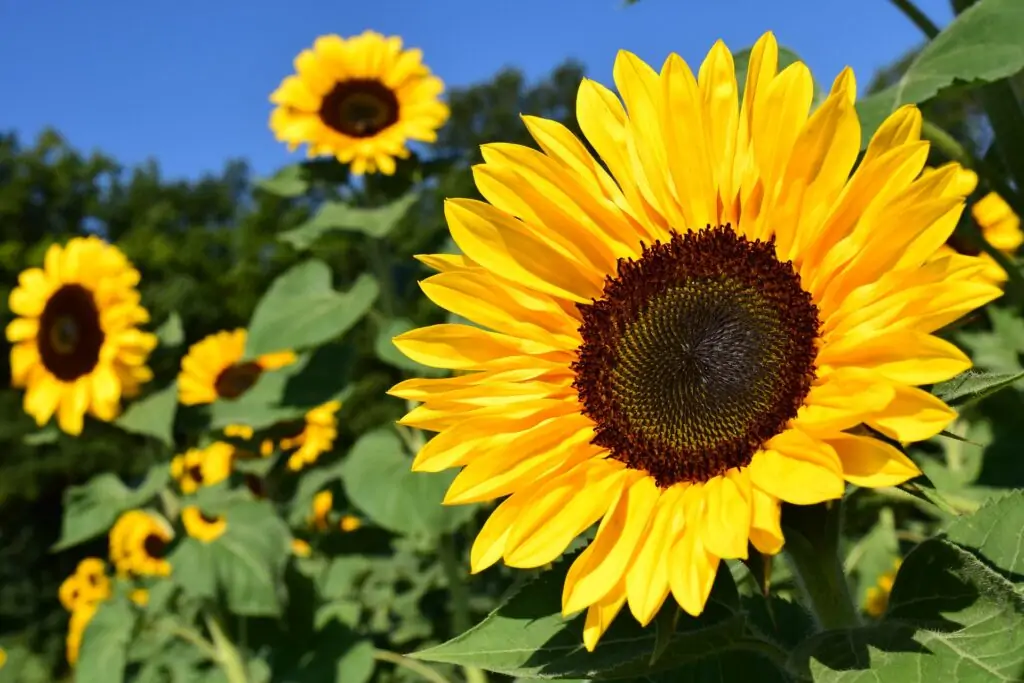
Sunflowers are not only a beautiful addition to any garden, but they also attract bees and other pollinators, which can boost the yield of your vegetables. Their robust stalks also provide natural support for climbing vegetables like beans and peas.
Catnip (Nepeta)
Catnip is a multipurpose companion plant that provides a lovely perfume to your garden while benefiting a variety of vegetables.
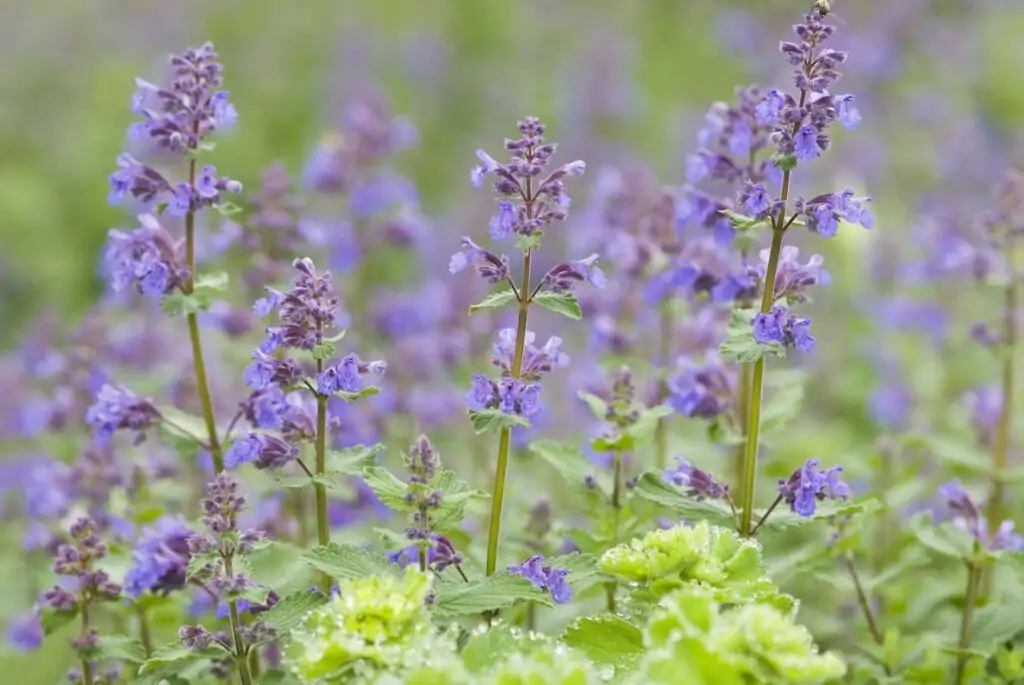
Driving Away Flea Beetles
Catnip is very effective at warding off flea beetles, which can cause harm to tomatoes, eggplants, and brassicas. Putting catnip around your veggies will get rid of these nasty beetles.
Attracting Pollinating Insects
Catnip is also recognized for its ability to attract bees, butterflies, and other pollinators, which can increase your garden’s pollination rates.
Beebalm (Monarda Citriodora)
Beebalm is another flower that gives both aesthetic and functional benefits to your vegetable garden.
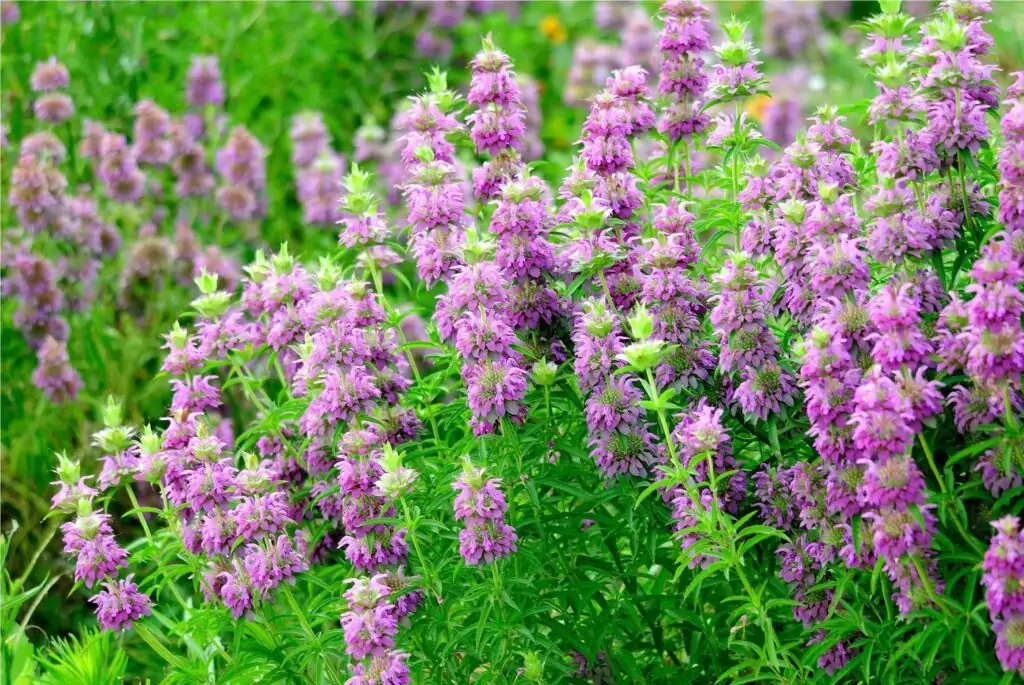
Methods for Preventing Apple Tree Pests
Beebalm can prevent the infestation of apple trees by pests such as apple maggots, making it a perfect companion plant for fruit tree gardens.
Rose Insect Control
Beebalm is also a natural pesticide for roses, as it repels Japanese beetles and other insects. If you plant bee balm near your rose bushes, they will remain healthy and pest-free.
Lavender
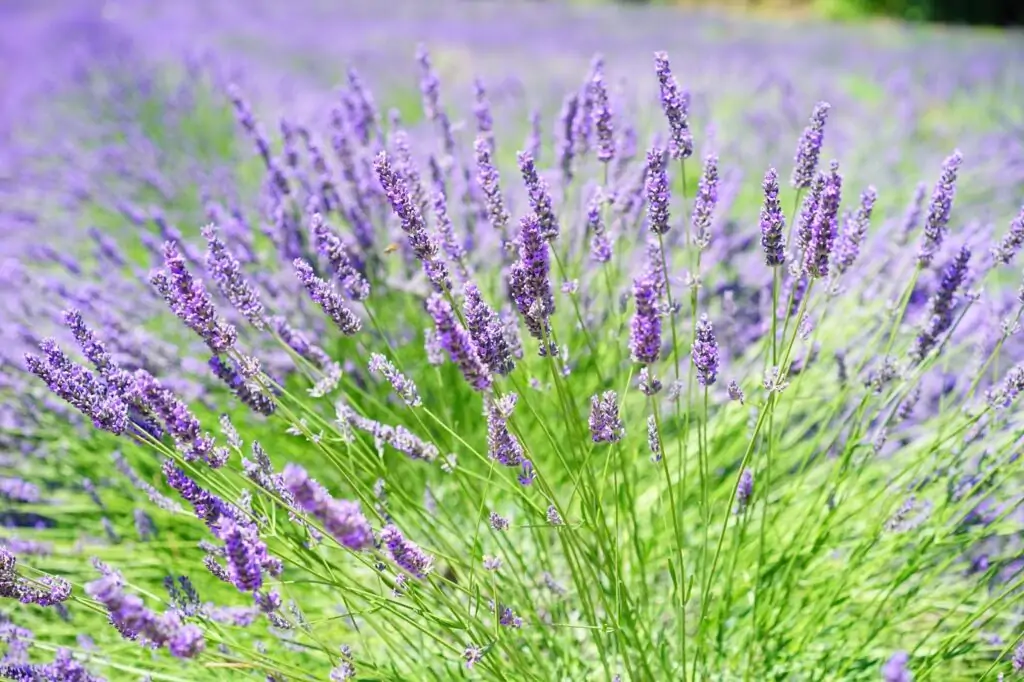
A Natural Insect Repellent
Lavender is not only an attractive and aromatic addition to a vegetable garden but also a highly effective natural insect repellent. Its potent aroma deters pests such as whiteflies, aphids, and cabbage moths, preventing harm to your produce. Lavender also attracts pollinators such as bees and butterflies, hence increasing agricultural yields and pollination.
The Health of the Soil and Drainage
Lavender is a drought-tolerant plant that can help your vegetable garden’s soil health and drainage. Its large root system aids in loosening compacted soil, enhancing water infiltration and aeration. The growth of vegetables that require well-draining soil, such as tomatoes and peppers, can be enhanced by planting lavender nearby.
Mexican Aster (Cosmos Bipinnatus)
Cosmos bipinnatus, popularly known as the Mexican aster or garden cosmos, is an annual blooming plant with colorful and appealing flowers. These multicolored flowers, which include white, pink, and hues of red, will be a beautiful addition to any vegetable garden. Mexican aster is not only aesthetically beautiful but also functional in the landscape.
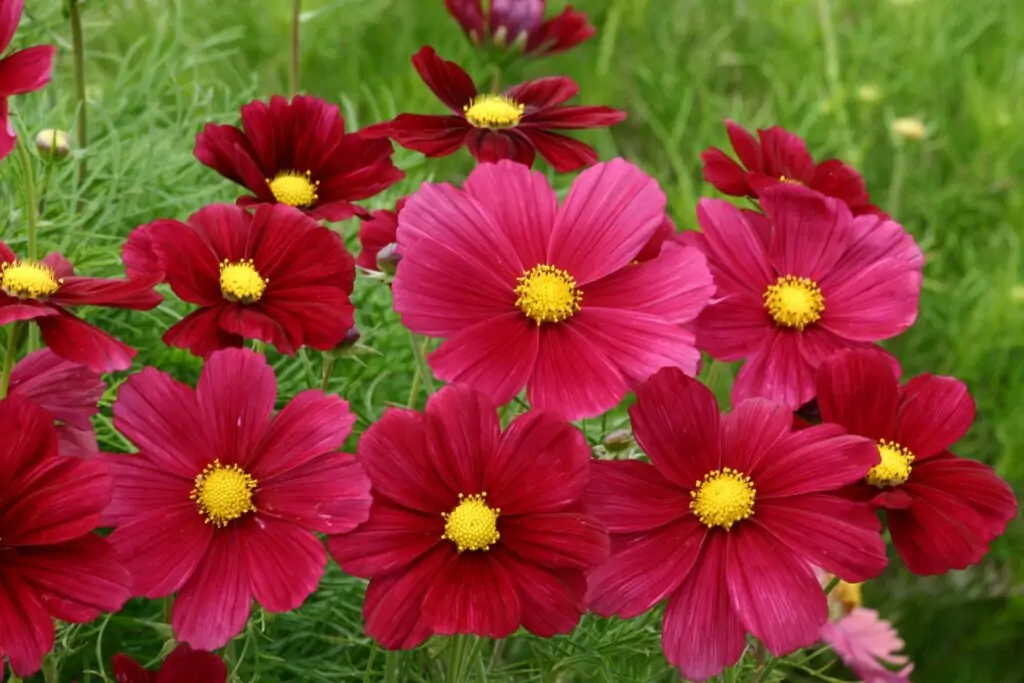
Attracting Pollinators and Beneficial Insects
Mexican aster flowers are highly effective at attracting pollinators, such as bees and butterflies, which are necessary for the pollination and growth of your vegetable garden. These plants attract beneficial insects, such as lacewings and ladybugs, which aid with pest control.
Simple to Cultivate and Low Maintenance
Cosmos bipinnatus is an easy-to-grow, low-maintenance plant, making it a good option for beginning gardeners. It is adaptable to different soil types and loves full light. These drought-resistant plants are a low-maintenance addition to your vegetable garden because they do not require frequent irrigation.
Commonly Asked Questions (FAQs)
In this section you will find the answers to some frequently asked questions about the flowers to plant in a vegetable garden.
Certainly, planting flowers and veggies together can provide various advantages, including natural pest control, excellent pollination, and enhanced flavor and growth for your crops.
Examine the individual advantages that each bloom provides, such as pest control, pollinator attraction, and flavor enhancement. Included among the most popular options are nasturtiums, marigolds, sunflowers, catnip, and bee balm.
While some flowers provide more specialized advantages for particular crops, the majority of flowers can help a wide range of plants. To establish the most efficient companion planting strategy, it is vital to investigate the unique requirements of your veggies and the benefits of your chosen flowers.
Although flowers require some room, the benefits they bring typically outweigh this requirement. You can also strategically plant flowers along borders or between rows to increase your garden’s efficiency.
Conclusion
Now you know which flowers to plant in a vegetable garden to improve pest control and get better pollination. You may cultivate a beautiful, functional, and fruitful garden that thrives throughout the growing season by choosing such flowers as nasturtiums, marigolds, sunflowers, catnip, and bee balm. Feel free to experiment with various flower and vegetable combinations to find your garden’s optimal companion planting approach.